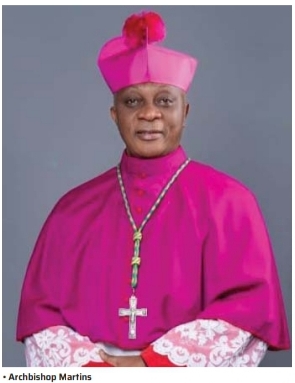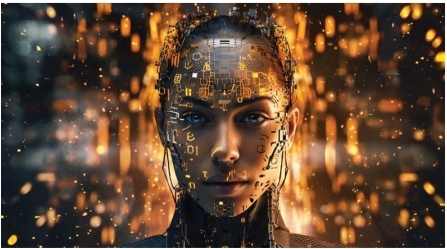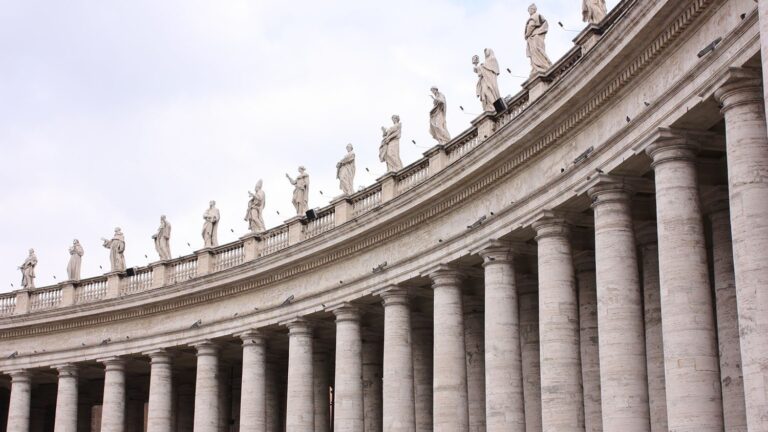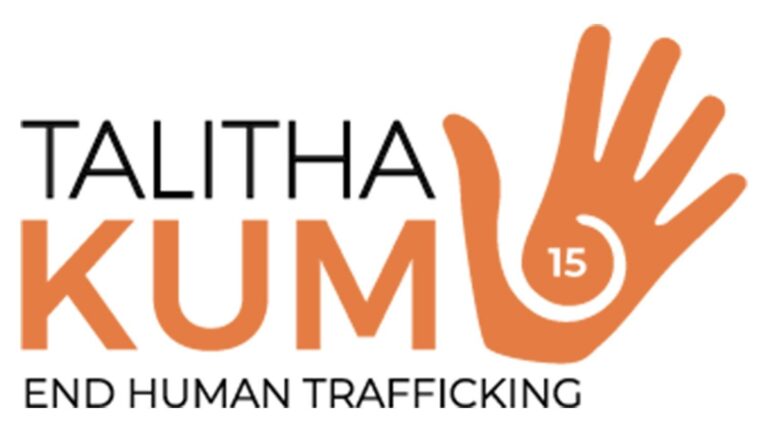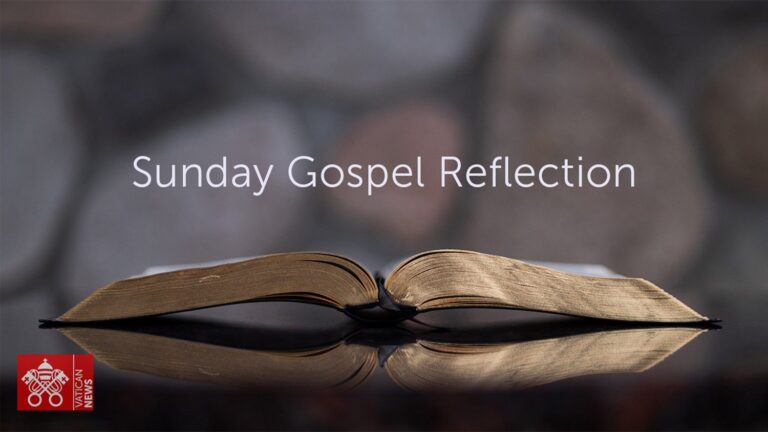Creators of artificial intelligence must factor in ethical concerns -Archbishop Martins
lagosarchdiocese
As part of the activities in commemoration of the 2024 World Communications Day in the Archdiocese of the Lagos, the Archbishop, Most Rev. (Dr.) Alfred Adewale Martins had an interactive session with the media. The media parley centred on the Pope’s message themed, “Artificial Intelligence and the Wisdom of the Heart: Towards a Fully Human Communication” and other contemporary issues. The Editor, NETA NWOSU and CONSTAINCIA URUAKPA reports.
Input on Pope’s Message
We thank our Holy Father for calling our attention to the issues that arise around artificial intelligence and all that surrounds it. First of all, he recognises the fact that the artificial intelligence and its uses are in reality, and we all, one way or another, have been enjoying what it presents to us as values. In our different ways, we have been making use of artificial intelligence in different areas of our lives. But as useful as it is, our Holy Father calls our attention to the fact that we need to have a disposition that is necessary, in order that we can take full advantage of artificial intelligence and avoid the negatives around that technological development. He reminds us that this technological development is like a revolutionary event, a buildup upon what has been constantly growing since long time past in history, but it has taken up a new dimension.
And therefore, he urges that we use the disposition that the Church has always had towards science and its discoveries. The Church has always looked at science as being a very useful tool, but it is not all that there is. And therefore, between faith and reason, there is a connection, between science and mission, there is a connection, and the connection is such that if we put it to use, it will serve all of humanity. And so, he says, we should not as it were, reject the advancement that has been made with the artificial intelligence that is being put to use, we should not look at all the negatives and therefore say this is of no benefit. But at the same time, we should not idolise artificial intelligence to the extent that we are so taken up by all that it is able to do, that we are not able to recognise its shortcomings.
And so, the shortcomings that our Holy Father points out includes the fact that if we are not careful, we can arrive at a point in which the human person is made almost at playing a second fiddle of artificial intelligence, whereas, artificial intelligence is a creation of human persons. If we do not put it to use appropriately, it can make the human person to be playing a second fiddle. And so, that is why the question about how rich the world is as long as technology is concerned put side by side with how poor the world is in humanity as he puts it, we need to ensure that we create a balance; a balance of neither rejecting nor idolising. And what that means for our Holy Father as he has texted it to us is that we must engage with the creators of artificial intelligence systems. We must engage with them to help them recognise some of the fears, some of the concerns that are there with regards to its use.
And if we are aware of some of these concerns, then we will factor that into their creations. And then apart from that, we should recognise that there are many more issues that are involved in the use of artificial intelligence. How does it impact upon the dignity of the human person? How does it impact upon how it is possible to use artificial intelligence systems to make what they call deepfakes; fake news, fake information and dissemination of fake stories about people, about institutions. So, our attention is just to call for caution in the use of artificial intelligence. But I think for media people, there’s also something that is important with regards to artificial intelligence and its impact upon society, I believe that the men and women of the mass media can play a role in ensuring that we do not promote a situation in which the use of artificial intelligence is made to look as if it is a beam or an end all.
We should not promote it in such a way as to make it look like it’s the only way at which we can attain knowledge and to guide our actions. On the one hand that is true, but on the other hand also, let us not be so afraid of it as to condemn it or to paint it in bad light such that people will have a negative attitude towards it, but rather, that the media produce a lead way in all matters, as they say, virtue lies in the mill between extremes. And so, in the same way, proper disposition towards systems of artificial intelligence lies between the extreme of rejection and the extreme of idolisation of artificial intelligence. I think the media can do a great deal of work in that regard with that kind of disposition.
How the Church communicates to state actors.
The fact of the matter is, we all know that the situation in the country now is pretty, pretty bad. Life is difficult, things are expensive, the finances with which to prosecute the things that have to do with life are also very, very short, and insecurity and the rest of it are there. So, the Church as it were, is experiencing this in her members; her members are as much part of the difficulties that we have been experiencing in our country. And so, the Church first of all in her leaders take advantage of whatever opportunities we have to give the government officials on the situations that people are going through in our country today. And of course, through the members also, in their different areas, in their different formations, the Church engages with government and government institutions in dialogue activities.
For example, not long ago, we had the Knights of St. Mulumba making an input into the issues with regards to the killings and insecurity that are there all over the country. Just in the same way as missions, for example like priests, with their different homilies, with their different press releases, engage on this kind of topics because as I said, everybody is involved, and not just the present but also the future of the nation and future of people are concerned. So, I would say we engage with government in public through speeches, through press releases, through engagement, but also, we have visits that are made to government officials in order to make them to realise what Nigerians are going through, because we see it happening every day, we feel it every day as we sit in our offices, as we engage with people who are the victims of all these hardships. And therefore, we know it’s our responsibility, and we take it seriously, and we move on with it as much as possible.
Ethical concerns
What the Church is asking concerning artificial intelligence is not to censor artificial intelligence but rather, it is asking that the creators of the systems of artificial intelligence must themselves factor in ethical concerns of people into their creations. That indeed, it is necessary that there should be a measure of oversight, because anything that is handed on to human persons, anything that is under the purview of human persons can be used for good or for ill. And so it is necessary, but there should be some authority that guides, that leads, not sensor, but rather give guidance, using ethical values in order to ensure that first of all, common good is preserved, to ensure that people are not simply thrown aside or people are not painted in black colour where there is no justification for such. As the Holy Father said, we have seen examples of people using artificial intelligence, voice simulation that you can hardly distinguish between whether it’s a person or a machine that is at work. All of these are value concepts, and it is necessary that those who create the systems be aware and factor in how to ensure that those possible abuses are averted.
The Church and AI
Well, the Church faces realities. The reality is that it is there. And if it is there, you either ignore it and let it go haywire or else, control it and give directions to it. Of course, the loss of jobs is one of the things that create concerns about artificial intelligence, and indeed, it’s one of the things that has been mentioned in the Holy Father’s interventions, both on the World Day of Peace on January and in the present day, the loss of jobs as a negative that comes from artificial intelligence. Loss of jobs, for instance, that arises is meant to ensure that the human dignity is put into consideration. Poverty becomes a big issue, and inability to take care of people’s daily needs becomes even a bigger issue.
But then, even though that fear is there, the fact is, unless you address it and give directions to those who are creating those robotics that can do all kinds of things that tend to exclude the human person, that they themselves are aware of these negative and therefore, in carrying out their own scientific works and doing their own discoveries and creations, they must pay attention to that aspect of the downside that can come. Indeed, the Church is paying attention to it in order that these side effects will not be allowed to happen. In fact, when it talks about it, it’s not only talking about the Church itself but also talking about every human person, to recognise that these negatives are there. But then, the realities are also there and if not guided, things can go haywire. And therefore, it is not only endorsing it, it is endorsing it to caution, facing realities of the time. And as they say, we should not be afraid of it, rather, we should give it the guidance that it needs.
AI’s impact on spirituality
You can look at it in two different aspects. You can look at it from the point of view that for those who don’t read the bible, it’s helpful to them in being able to make contact with what the readings are, but of course, you can also look at it from the negative angle that it discourages people from bringing the bible. But what is most important is that technology can be used for good or for evil; negatively or positively. In fact, the AI can also make positive impacts on the spirituality of people. For example, if there is an application that is actually being developed now through which people can have access to the documents that the Church has released over the years.
Through the application that uses the AI technology something that can help the spirituality of people is being put to use. And apart from that, when there are opportunities for catechists, for example, to use that technology to make things more vivid, to bring it closely to the minds and hearts of those who are in their classes, obviously, it is impacting positively upon the catechumens. And so, I believe that while there are fears, while there are concerns, there are many positives, and indeed, that is why the Holy Father is saying, ‘Don’t be afraid of it, rather, engage with it because you can’t help it being there anyway; engage with it in order to give it direction.’ Even those who are doing the creations, do not have the values that you have. So, if you give them values, make the values available, they will factor it into their creations. So, that is the thing.
Allegations that Churches are not empathetic
Well, there has never been a time when everything was completely well. But there has always been a time too in which every institution continues to survive, to manage, to get things going. And therefore, as it is now, there are challenges, there are difficulties with finances of people, but the institution needs to continue to go. And therefore, if people ask for donations, certainly they are not going to put hands in your pocket to bring whatever donations they are asking for. You are to offer whatever you are able to offer, and it is to be done with generosity of heart so that the life of the institution can continue. And in any case, people just scale their priorities. And if the work of mission must continue, then, it should also be part of the things that people put in priority in their day to day lives. It doesn’t mean not being empathetic, but rather, it means do what you can in order that the institution can continue to flourish as we go into the future. I believe it’s important that we do not look at just one situation of the Church asking for donations towards projects that need to be done.
We should also look at it from the point of view of what the Church is offering to people who are in need, that is constantly ongoing, that is constantly put to use through the St. Vincent de Paul, through JDPC, through activities in different parishes: That is constantly ongoing in spite of the challenges of the time. At a time when covid19 was creating problems, the Church was there, making available palliatives to people. That for me is an indication of empathy. Look at the percentage of those who go to churches; at least in our own, the Catholic Church, the greater percentage are not coming because of some spiritual matter or because of some marriage issue. Some come to ask for support; school fees, accommodation, hospital bill etc., that is an ongoing thing that keeps on happening. And therefore, if the Church asks for donations, it also goes into these areas of life, apart from whatever projects that need to be done. So, I think it’s good to put that into perspective so that we can think appropriately.
Challenges confronting the country and people
It is beyond any controversy that life is very, very bad for the majority of Nigerians at this point in time. And the difficulties obviously have arisen from policies and decisions that have been made. The policies and decisions that have been made, even if they are made with the best of intentions, they are having very negative effects and impacts on the life of the people. Like for example, people have recognised the fact that for instance, the fuel subsidy has to go, they have accepted that the issue with regards to the activities of CBN are necessary for the survival of finances and the rest of it. I believe that government needs to take a better and more critical view of the impact that that is having on the citizens of this country, because every policy that is supposed to have a good long term effect that does not take cognisance of the present day life of members, that policy I must say, really needs to be reviewed in such a way as to ensure that people do not die while they are waiting for the long term effects.
I’m aware that several governments and several ways have been making a record to do what they call palliatives, Lagos State Government has been doing its own, Delta and other places have been giving the palliatives. But the palliatives either are not reaching everybody, or else, they are simply inadequate to where they make a significant impact on what the people are feeling. So, what one can say to government is to take a look again and see in what way the adverse effects of otherwise good policies can be as it were ameliorated, because nobody waits for tomorrow if he’s hungry today, rather, decisions and policies need to be constantly reviewed to have a way to the experiences that are being made available to them through different ways; through the media, through advocacies and the rest of it.
As for the people who are going through this, well, I can only say Nigerians, we are among the most resilient of people. We tend to find our ways around whatever it is that is going on. But it’s also important that as resilient as we are, we also make our voices heard. Everybody talks about the president and governors and the rest of it, which is appropriate. But when we have those who are closest to the people in terms of governance at the local government level, at the LCD level, we should engage them also. We should engage them and let them recognise the ways in which these issues are thoroughly impacting negatively on the life of people.
lagosarchdiocese news
sc
